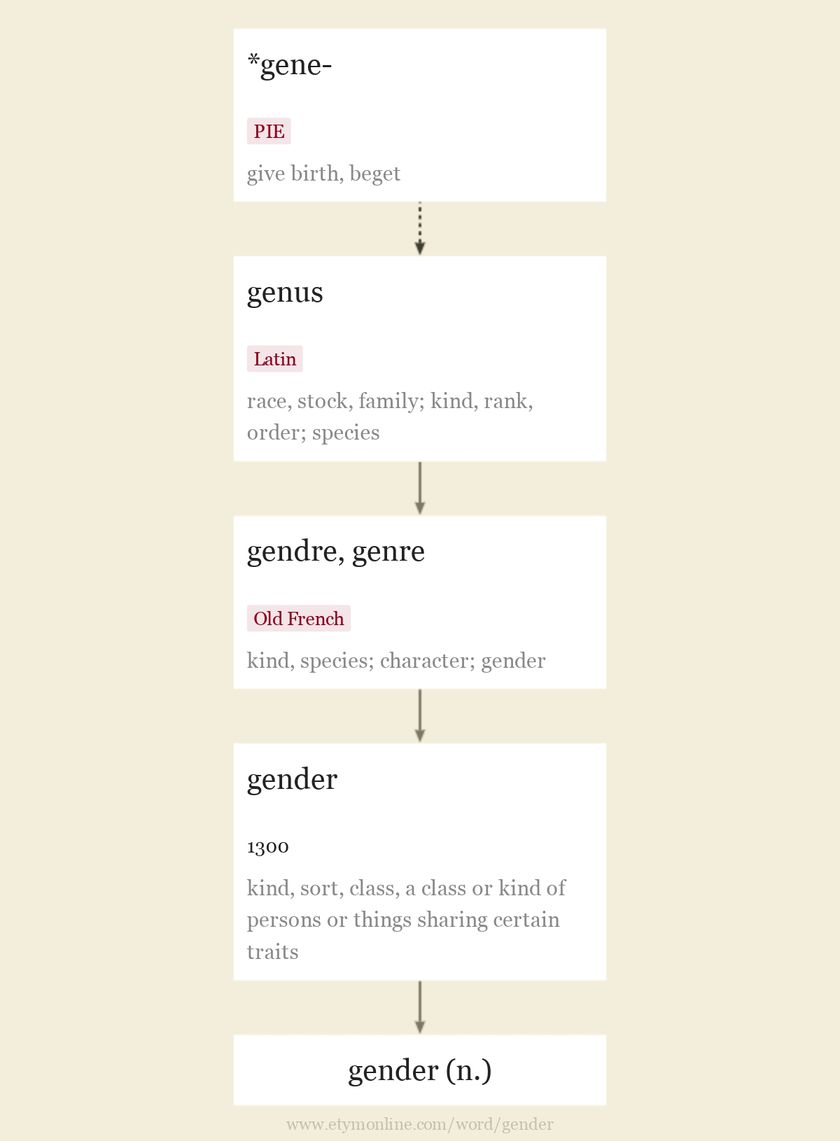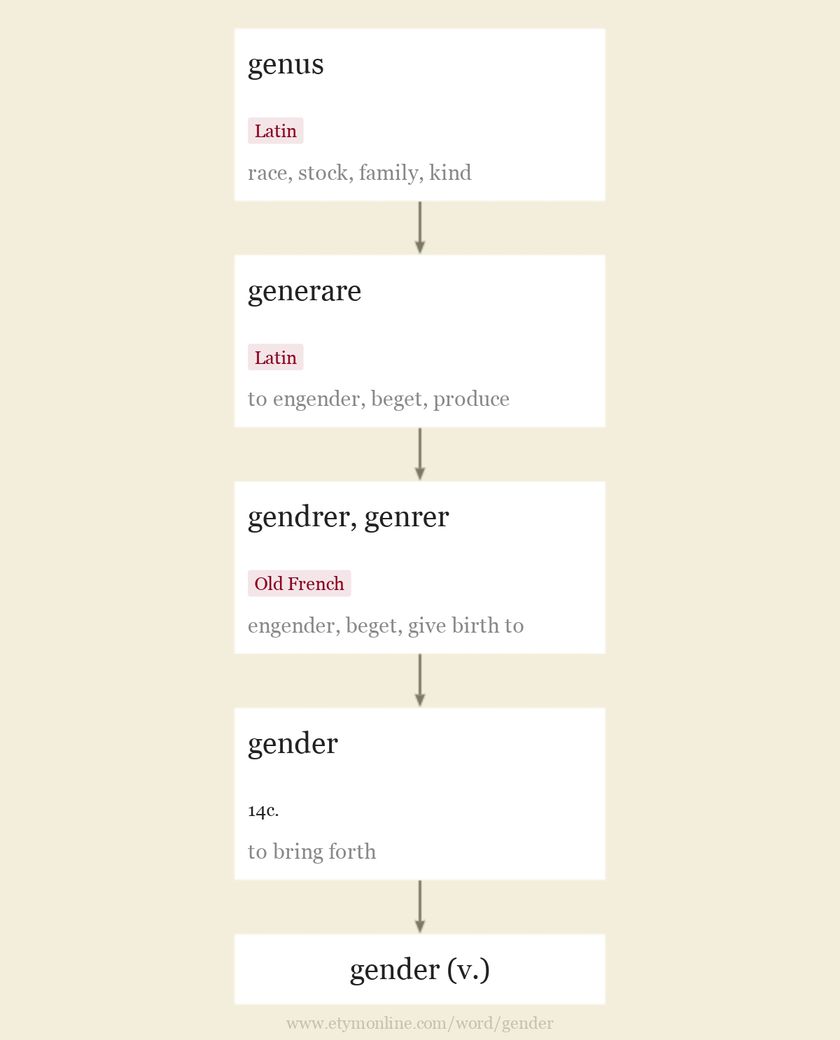| 词源 |
gender n.c. 1300, "kind, sort, class, a or kind of persons or things sharing certain traits," from Old French gendre, genre "kind, species; character; gender" (12c., Modern French genre), from stem of Latin genus (genitive generis) "race, stock, family; kind, rank, order; species," also "(male or female) sex," from PIE root *gene- "give birth, beget," with derivatives referring to procreation and familial and tribal groups. The unetymological -d- is a phonetic accretion in Old French (compare sound (n.1)). Also used in Latin to translate Aristotle's Greek grammatical term genos. The grammatical sense is attested in English from late 14c. Jespersen ("Philosophy of Grammar," 1924) defines grammatical gender by reference to the Indo-European distinction of masculine, feminine, neuter, "whether the division be based on the natural division into two sexes, or on that between animate and inanimate, or on something else." The "male-or-female sex" sense of the word is attested in English from early 15c. As sex (n.) took on erotic qualities in 20c., gender came to be the usual English word for "sex of a human being," in which use it was at first regarded as colloquial or humorous. Later often in feminist writing with reference to social attributes as much as biological qualities; this sense first attested 1963. Gender-bender is from 1977, popularized from 1980, with reference to pop star David Bowie. gender v. "to bring forth," late 14c., from Old French gendrer, genrer "engender, beget, give birth to," from Latin generare "to engender, beget, produce" (see generation). Related: Gendered; gendering. updated on October 08, 2022 |

